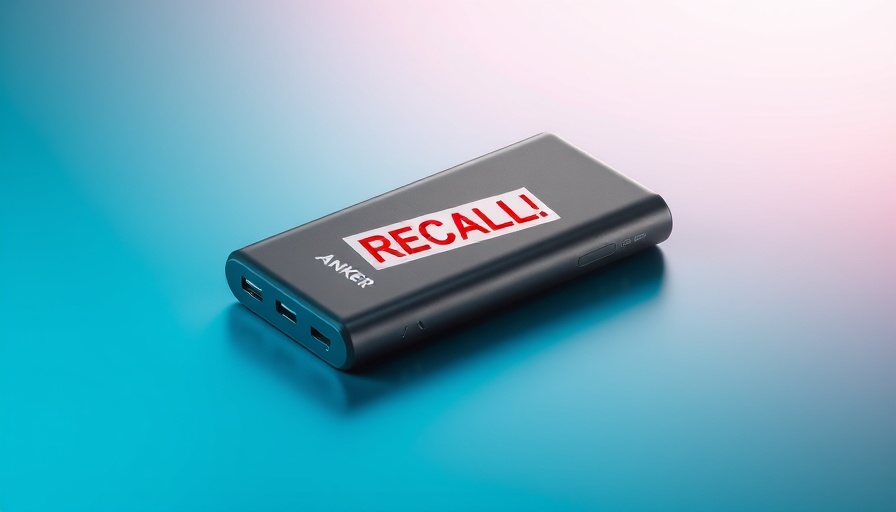
Stay Charged and Safe: Anker’s Voluntary Recall on Power Banks
Portable power banks have become essential gear for anyone on the go, whether you’re traveling or simply navigating a busy day. Yet, recent safety concerns have put Anker power banks under scrutiny following the announcement of a major recall due to fire risks associated with certain models. Here’s what you need to know to ensure your safety and that of your mobile devices.
Why Anker Is Recalling Its Power Banks
The root cause of the recall points to issues with lithium-ion batteries. Although Anker describes the likelihood of malfunction as minimal, the company is taking proactive measures to enhance safety. “Out of an abundance of caution,” Anker is extending the recall that initially only listed the underperforming Model A1263 power bank, which affected over one million units earlier this year. The scope of the problem has widened, prompting the need for this latest announcement, which includes a broader range of models.
Identifying at-Risk Models
If you own an Anker power bank, it’s vital to verify whether yours is listed in the recall. The following models are now flagged as fire risks:
- Anker Power Bank (10K, 22.5W) — Model A1257
- Anker Power Bank (20,000mAh, 22.5W, Built-In USB-C Cable) — Model A1647
- Anker MagGo Power Bank (10,000mAh, 7.5W) — Model A1652
- Anker Zolo Power Bank (20K, 30W, Built-In USB-C and Lightning Cable) — Model A1681
- Anker Zolo Power Bank (20K, 30W, Built-In USB-C Cable) — Model A1689
It’s critical to stop using any of these models immediately, but refrain from disposing of them until you’ve confirmed they qualify for the recall. This cautious approach is designed to minimize potential hazards while you address the safety issue.
How to Handle the Recall
For owners of the affected power banks, Anker has established a simple process to receive either a replacement device or a gift card via its Product Recall Submission Form. Gaining peace of mind involves checking your model number carefully against the recalled list before proceeding. Should yours be included, dispose of it correctly by locating a certified facility, as typical recycling centers may not handle recalled lithium-ion products adequately. Communication is key: always call ahead!
The Bigger Picture: Safety First
Receding from this immediate context, it’s a timely reminder about the importance of consumer product safety oversight. The trend of recalls speaks volumes about the possible risks associated with modern technology. This isn’t an isolated incident—numerous brands periodically face scrutiny due to production flaws, particularly concerning battery-operated devices. Anker’s vigilant decision to proceed with a voluntary recall reflects an industry commitment to consumer safety.
Understanding Lithium-Ion Battery Risks
Lithium-ion batteries, widely used in portable electronics, can pose significant risks if not manufactured or maintained properly. Understanding these hazards is vital in today’s gadget-centric world. Overheating, puncturing, and production defects can cause these batteries to catch fire or even explode. This recall isn’t just a corporate formality; it’s an essential response to ensure customer safety.
Final Thoughts: Be Proactive
In an era where personal devices are closely tied to our daily lives, it’s important for consumers to stay informed about product safety. Regularly checking for recall announcements and maintaining safe usage habits are relevant steps in protecting both yourself and your investments. If you own an Anker power bank, take swift action to safeguard your home and family.
Engage with your household these days about battery safety; it’s a critical conversation. Ensure everyone understands their product risks, awareness strengthens our collective safety net. Remember, knowledge is power.
Key Takeaways
Your safety is paramount, and knowing where your devices stand in terms of safety recalls can significantly impact your well-being. Don’t delay if your Anker power bank is affected; check the model and follow through with the recall process. Stay informed, stay connected, and most importantly, stay safe!
 Add Row
Add Row  Add
Add 




Write A Comment